Survey finds 60% of Year 13 students have vaped
Photo by Johnny Bugeja.
Over 60% of Year 13 students have tried vaping at least once, with youngsters most likely to start aged 13 or 14, a survey researching youth vaping in Gibraltar has found.
The joint survey by Public Health Gibraltar and the University of Gibraltar provides an in-depth snapshot into trends locally, which will guide future efforts to curb vaping amongst the youngest in the community.
The aim is to use this information to provide targeted and essential messaging to youngsters within school settings.
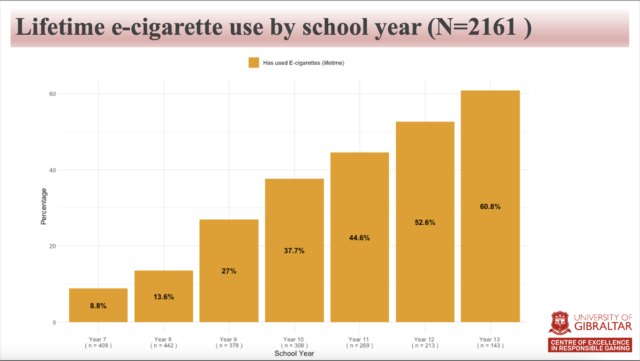
But the survey found that many youngsters are already aware of the potential harms of vaping.
Some 49.3% of respondents said they think vaping could cause “very much” risk of harm to an individual, with 26.7% stating they believed vaping caused “moderate harm”.
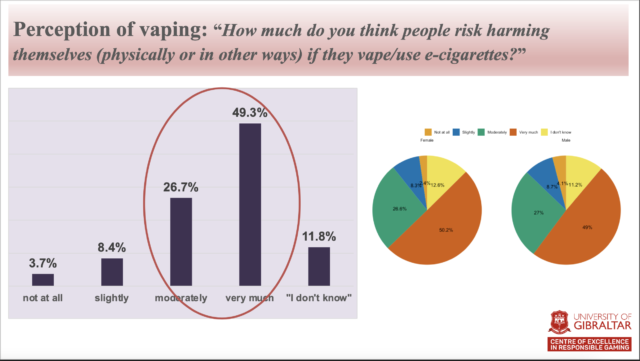
However, the perception of harm lowered to 36% amongst those who vaped and increased to 55% for those who did not vape.
Some 2,179 secondary school students were surveyed and researchers found that one quarter of Year 13 students vaped every day or almost every day, with 5.3% of Year 8 students also vaping daily of almost daily.
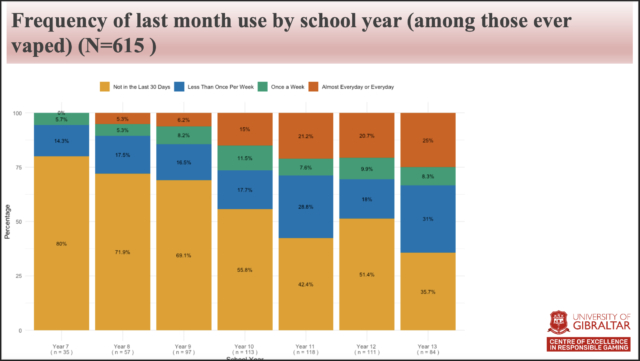
Key statistics included that 3.2% tried vaping aged nine or less, more girls tend to vape than boys, most have e-cigarettes with both nicotine and flavourings, and just 4.7% were regular smokers before they vaped.
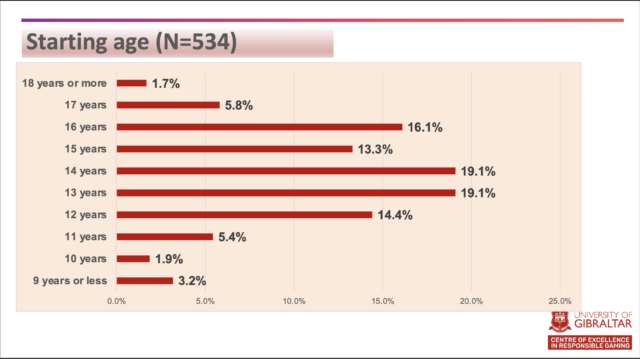
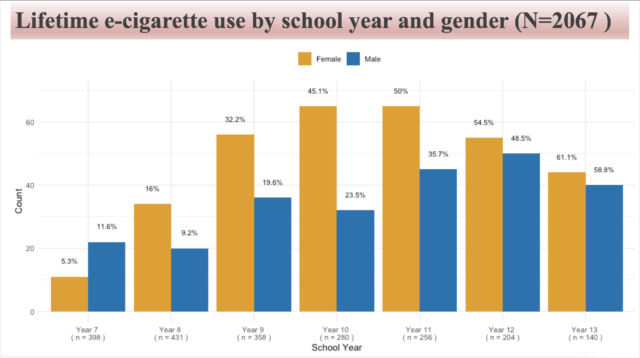
In comparison to 2023 statistics from UK researchers who found 20.5% of children had tried vaping, in Gibraltar the overall figure was 29.2% of all children surveyed.
The findings were delivered by Director of Public Health, Dr Helen Carter, Vice Chancellor of the University of Gibraltar, Professor Catherine Bachleda, the Minister for Education and Public Health, Dr John Cortes, Marco Zavagni from Public Health Gibraltar, and Professor Zsolt Demetrovics, the University’s Chair of the Centre of Excellence in Responsible Gaming.
E-cigarettes were introduced two decades ago in a bid to aid smoking cessation, but the issue now is that those who had never previously smoke, particularly youngsters, are accessing them, even though it is illegal to sell them to children.
The survey found over 50% of students from Year 7 to Year 13 have tried vaping “out of curiosity”, even though 90% have never tried a cigarette.
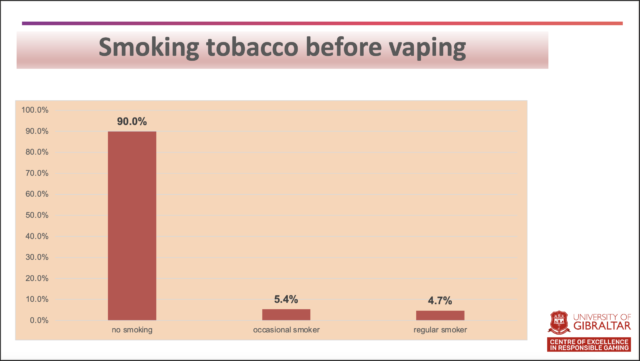
This posed further questions for Public Health and the University about whether e-cigarettes are a gateway to youngsters smoking later in life.
Much the opposite from e-cigarettes reason for invention, in future it is hoped the researchers could study this.
“That’s one of the main questions,” Dr Zolt said.
“Will the kids transfer for smoking? Will that be a gateway drug or gateway behavior to smoking? But that's difficult to answer.”
“That's what we should try to prevent because it's very different when we look at adolescent vaping and adult vaping, it's two very different things. Because of course, for someone who's been smoking for decades, then it's probably a good decision to change for vaping because it's less harm.”
“So you can say, kids, there's no harm yet, so it starts from a zero level of harm.”
“That's the question, but there are many factors. We don't know if they will move on to try smoking as well.”
“If they will, they will smoke less because of their vaping history or not. It's quite complicated to try to understand process.”
Dr Carter told reporters that vaping is probably the most common Public Health topic she is asked about.
For Public Health officials is causes a dilemma, on one hand it is less harmful than smoking and intended to be used for smoking cessation.
On the other hand, there’s deep concern a new generation will become addicted.
“It's a difficult message at times because for those who are adult committed tobacco smokers, the evidence indicates it's 95% less harmful than tobacco smoking, but it is not harm free and we are not clear of what the long term effects are,” Dr Carter said.
“Hence why our concern as minister alluded to that next generation of vapers coming through, and hence why it was really, really important that we undertook this study, because I kept hearing all children in Gibraltar vape.”
“That was the most common phrase that was quoted at me.”
“I really felt it was incredibly important that we tried to do a snapshot of prevalence to try and understand how many young people did vape.”
She added the study enhances knowledge which can be used to influence interventions.
Dr Cortes said making vapes less available will be able to curb the uptake, adding how the Government banned the sale of vapes to children under 18.
“I find [this survey] really, really useful because it shows me various things,” Dr Cortes said.
“The age at which we need to tackle it, which is the age around Years 8 and 9 which is where it starts to increase.”
“That curiosity is one of the main reasons, which means if we make it less available, it's less likely that they will be able to fall into that temptation.”
“That's another thing so if they're not exposed to it, then the curiosity won't be arisen and a relatively high awareness of harm or potential harm which is the kind of message that could be put across at the age that we've identified.”
Further to Public Health concerns there are also environmental concerns.
In Parliament last month, Dr Cortes said he was considering banning single-use disposal vapes due to these items ending up in landfill.
“This is something that the government has taken a tremendous interest in,” Dr Cortes said when unveiling the findings.
“We have, for example, forbidden it in children and we are considering for a number of reasons, not only the health, but also the environmental health, the possibility of banning the importation of certain disposable vapes as a grandfather of children at vulnerable age.”
Mr Zavagni said it's estimated that every week in UK 1.3 million vapes are thrown away.
“That's a really big figure,” he said.
“That is basically equal to 10 tonnes of lithium battery, because in a vape we know that lithium batteries and that's the equivalent of more than 1000 electric vehicles, not counting what is plastic, metals and mercury.”
“There's a lot of things that we're throwing away and we're not recycling"









